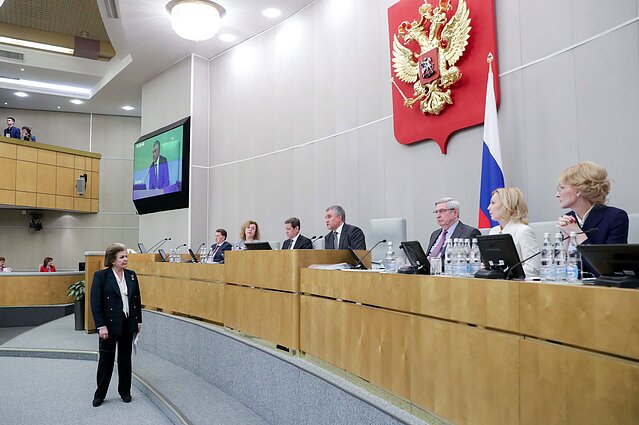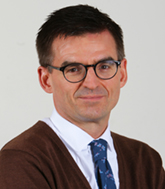
A disturbing question before the Duma
In an article for LRT.lt, Bradley Woodworth, Associate Professor of History at the University of New Haven and Programme Manager of Baltic Studies at Yale University, analyzed the recent proposal to revoke the recognition of Lithuania’s independence in the Russian Duma.
Last week draft legislation was introduced in the Russian parliament proposing that the Russian Federation revoke its recognition of the independence of Lithuania. The proposal came from Duma deputy Yevgeny Fedorov, a leading figure in the majority party United Russia.
It could be seen as a direct response to the decision by Lithuania’s Seimas last month to recognize Russia’s war in Ukraine as genocide – a decision also made by Canada’s House of Commons.

Woodworth writes that President Vladimir Putin is seeking to undermine the post-Second World War international order in which the sovereignty of states is recognized by the entire international community. Fedorov is known for his extreme views regarding Russia’s position as a state after the collapse of the USSR in 1991 in that he does not view the post-Soviet states as juridically legitimate. He heads a Russian organization called the “National Liberation Movement,” the stated aim of which is to restore the “territorial integrity of Russia” and “the sovereignty lost in 1991.” Russia’s legal borders, Fedorov argues, are those that existed at the end of World War 2.
On February 24 of this year, when Russia’s war against Ukraine began, Fedorov said: “Whatever words are used to cover up the removal of territories from our fatherland – self-determination, the independence of republics – though not one of them officially left the USSR, which says much – there is not one document about the exit of Ukraine from the USSR, for instance. […] It will end when, as Putin said, the security perimeter is established on the borders of the Soviet Union. I can say that inside this state, within this perimeter, there will be restored – of course voluntarily – a unified state with the borders of 1945,” meaning those of the USSR. For Fedorov, a type of “war” has been going on since 1991, a continuation of the Second World War that will end only with a return to the borders of 1945. Such a course of events would mean the forced inclusion into Russia of all of the countries whose territory had been part of the USSR, including Lithuania, Latvia, and Estonia.
In Copenhagen on June 10, Lithuania’s Prime Minister Ingrida Šimonytė downplayed the proposed Russian legislation, discouraging over-reaction. In her remarks to the Democracy Summit, Šimonyte drew attention to the core issue: Russia under Vladimir Putin has turned to autocracy and is championing the notion that countries’ political system are not for their own people to determine.
For Putin, many of the states that are members in the Western post-Second World War military alliance – the North Atlantic Treaty Organization (NATO) under US and British leadership – are actually colonies, not fully sovereign because of their reliance on NATO. The fear that Ukraine will become closely aligned with states in Western Europe and North America (“the West” in Putin’s neo-Soviet view) has been a major factor behind Russian aggression in Ukraine since 2014. In Putin’s view, Lithuania, Latvia, and Estonia as NATO members are not in fact sovereign states but colonies, countries with “no chance for survival in this tough geopolitical struggle.”
Russia is currently mounting an existential threat to global security. Putin is advocating that Russians abandon the idea that sovereignty for countries is determined by current international law but instead is simply the result of power. The arguments vary behind, on the one hand, Putin’s view of what constitutes a state or a colony, and on the other, Yevgeny Fedorov’s draft legislation for Russia to revoke its recognition of Lithuania’s independence. Yet the outcome either way produces a justification for invading Ukraine and attempting to seize its territory, and an excuse for making threats against the Baltic countries.
At the St. Petersburg International Economic Forum last week Putin made his own threat against the Baltic countries, drawing a parallel between himself and Czar Peter the Great, who “returned and reinforced” Russian control on Swedish territoty.
“Clearly, it has fallen to our lot to return and reinforce as well. And if we operate on the premise that these basic values constitute the basis of our existence, we will certainly succeed in achieving our goals.”
Thus Putin is justifying his war against Ukraine, and laying the foundation within Russian society to justify “return and reinforce” strategy in other areas as well that in the past have been under Moscow’s control. For the current Russian government, the successful “return” of the Pribaltika would be a sure sign of a return to past imperial greatness as these lands were brought into the Russian Empire (in the case of Estonia and much of Latvia from 1710, and for Lithuania and the rest of Latvia in the partitions of Poland in 1772 and in 1793-1795). They were also in the Soviet Union in 1940-1941 and then 1945 to 1991. “It also likely still sticks in the craw of some Russian imperialists that Lithuania was the to first to reach for independence, announcing the restoration of its independence in March 1990”, according to Woodsworth.
Though Duma deputy Fedorov may be dismissed as being on the fringe of Russian politics, it is not at all beyond the realm of possibility that the Baltic countries could be targeted after Russia is finished with its “special operation” – its war – in Ukraine. Whatever the outcome of this war, Putin will define it as “victory” and could conceivably move to initiate war elsewhere. The issue of independence for Lithuania, Latvia, and Estonia lies at the center of the question of “territorial integrity” of the state run from Moscow. It is certainly remembered in the Kremlin that throughout the final three years of the existence of the USSR, the Baltic republics were often at the center of attention.
Putin, Fedorov, and any who are willing to violate international law and restore Russia to some sort of imagined greatness with violence, clearly would like to “return and reinforce” Russia’s control over the Baltic countries. But it is no longer 1945. Most of the rest of the world does not calibrate its strength based on asserting maximal territorial boundaries. Were that to happen, there would be no end to the angry claims and no end to war. After the immense destruction of World War 2, the international community set about establishing agreements and institutions to aid states in collaborating, even in managing relations between competitors. War has not always been avoided, notably in Korea, Vietnam, in Afghanistan, Iraq, and Syria. Only in the former Yugoslavia in the 1990s did large-scale war return to Europe, writes Woodsworth.
“The entire world should continue striving to secure the peace and security that until Russia’s current war in Ukraine has held in the West for over two decades and which still has the possibility of showing the world that war is not the way forward.”





























